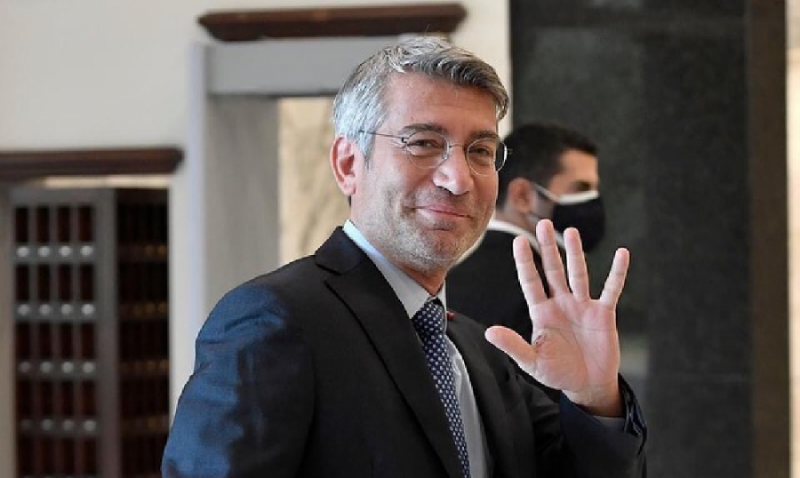Three main issues were the focus of Energy Minister Walid Fayyad's meetings during his visit to Syria: shared water resources between the two countries, the matter of Lebanon importing gas from Egypt, and electricity from Jordan through Syrian territory, as well as the file of Syrian displaced individuals in Lebanon and ways to organize their return to Syria. Fayyad headed a specialized delegation on water affairs and discussed with the Syrian-Lebanese Joint Water Committee the matter of dams on the Orontes and the Southern Great rivers. He met with Syrian Prime Minister Hussein Arnous, Minister of Electricity Ghassan Al-Zamil, Minister of Oil Firas Qaddour, and Minister of Water Resources Hussein Makhlouf.
Fayyad stated to "Al-Akhbar" that the U.S. initiative funded by the World Bank to import electricity from Jordan and gas from Egypt through Syria to Lebanon has not yet concluded. The attempt by U.S. envoy Amos Hochstein to link a ceasefire on the southern border to an economic aid package, including electricity, energy projects, and reconstruction in the south, indicates that the prospect of importing gas and electricity from Egypt and Jordan remains a viable project. This prompted discussions in Syria to ensure technical readiness for the connection, noting that many repairs and restorations of electric lines and gas pipelines on the Syrian side had previously been implemented at a cost of $8 million, while the gas line on the Lebanese side was rehabilitated at a cost of $1 million.
Despite this, Fayyad conveys Arnous's pessimism regarding U.S. approval, but emphasizes that they will not give the Americans an excuse to sabotage the project and will fulfill their technical obligations diligently. According to Fayyad, the Syrian Prime Minister expressed discontent concerning Lebanon's handling of the displaced file, informing him that the Lebanese government is not engaging with this issue seriously, adding that Mikati would not dare to even request an appointment to visit Syria, and the Syrians would not extend him an official invitation.
Syrian discontent arises from the fact that Lebanese behavior towards the Syrian file is populist and inhumane, possessing a type of cheap exploitation. This is despite the fact that Syrian authorities have provided judicial and security facilitation for their citizens to return home, yet there has been no corresponding Lebanese response; there is a Syrian amnesty for those with security files, and the Syrian General Security has allowed displaced individuals with judicial pursuits to return from the border to Lebanon. However, the Lebanese have not taken matters seriously at the higher official levels—the absence of mandates or ministerial coordination committees with the Syrians.
While the Syrians understand the international pressure on Lebanese politicians to avoid returning all displaced individuals, they insist on the implementation of Lebanese law, a cessation of provocative treatment of the displaced, and an end to meaningless media posturing that does nothing but incite discord.
Additionally, the shared water areas between Lebanon and Syria received significant attention during Fayyad's meetings. The countries share several rivers and water bodies, most notably the Orontes River in the Bekaa and the Southern Great River in the north. This partnership is governed by water agreements signed between the two countries, a large portion of which is not being implemented, allowing Lebanon to build a dam on the Orontes River. During the July 2006 war, Israeli aggression destroyed the initial structures of the dam that had been laid by a Chinese company, leading to drought for crops in the Bekaa region. To address this issue, Fayyad mentions an agreement with the Syrian side to drill studied wells under the agreement umbrella and to establish quotas on the amounts that can be extracted from the wells with Syrian approval, or to find alternative temporary solutions such as collecting water in ponds and then transferring it to farmers.
As for the Southern Great River, an agreement was made with the Syrian side to dredge the river and establish concrete barriers on the Lebanese side to prevent the river from flooding each winter, according to Fayyad. The emphasis on the Southern Great River issue comes after large amounts of rain fell within a short period due to climate changes during the past winter, resulting in significant damage to grass and vegetable crops in the Akkar area, as reported by "Al-Akhbar."




